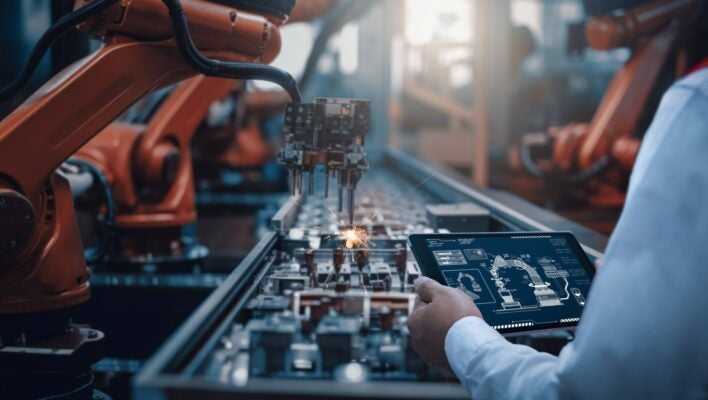The chairman of Foxconn, a major Taiwanese electronics contract manufacturer, has predicted that the development of generative artificial intelligence (AI) and robotics could lead to the elimination of low-end manufacturing jobs. This statement was made during a keynote address at the Computex conference in Taiwan.
Foxconn is already a significant advocate for AI technology, having successfully integrated it into its production systems. The company is further investing in this technology through a new AI data center with NVIDIA and developing its own manufacturing-centric AI model called ‘FoxBrain’. This model will combine Meta’s Llama 3 and 4 models with data from Foxconn’s operations.
Current State of AI in Manufacturing
The implementation of AI in the workplace has shown mixed results. Some companies have experienced failures, such as Klarna, which had to rehire human employees after an AI-fueled layoff period due to the technology’s underperformance. However, Foxconn’s chairman, Young Liu, highlighted the company’s successes with generative AI, noting that AI-powered software can now perform 80% of the work required to set up equipment for new production runs faster than humans.
Challenges and Limitations
Despite these advancements, Liu acknowledged that AI still struggles without human assistance. ‘We thought maybe we could replace every human. We quickly realized we could not,’ he said. This indicates that while AI can significantly enhance manufacturing processes, it is not yet ready to completely replace human workers.
Foxconn’s AI Initiatives
Foxconn is pushing forward with its AI initiatives, including the development of ‘FoxBrain’, which aims to leverage the capabilities of Meta’s Llama models and the company’s own operational data. The company is also building a new AI data center in collaboration with NVIDIA, the world’s largest semiconductor company.
Future Implications
The potential impact of AI on manufacturing jobs is a topic of debate. While some predict that low-end manufacturing jobs could be at risk due to automation, others point out that AI has limitations in certain sectors. As companies like Microsoft continue to invest in AI, the future of AI in the workforce remains uncertain.



